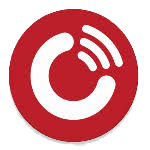Welcome to the Horn and Cauldron podcast…
Today we take a look at Tarot. Tarot is a specialized deck of cards used to play games or for divinatory purposes. They were invented in 15th century Italy and increased in popularity once the printing press was invented. Prior to the late 1700s, tarot decks were primarily used for card games. In 1781, a Swiss clergyman was the first to theorize that the symbolism of tarot may tie into older greater mysteries.
In the late 19th century, occult societies such as the Hermetic Order of the Golden Dawn took an interest in tarot and created two of the most popular tarot decks: Rider-Waite and Thoth. Today, you can find a myriad of modern decks from independent artists that use these decks as an inspiration.
-Major and Minor Arcana –
The major arcana is made up of 22 cards, mostly dealing with big overarching concepts that represent the Fool’s Journey. The major arcana cards are: The Magician, The High Priestess, The Empress, The Emperor, The Hierophant, The Lovers, The Chariot, Strength, The Hermit, Wheel of Fortune, Justice, The Hanged Man, Death, Temperance, The Devil, The Tower, The Star, The Moon, The Sun, Judgement, The World, and The Fool.
The Minor Arcana deals with more day-to-day issues, and has 4 suits: wands/staves, swords, cups, and pentacles/coins. Each suit has ten numbered cards and 4 court cards.
-Basics of Reading-
Choose a deck whose size, shape, and artwork vibes for you. You do not need to be gifted a deck, nor should you avoid second-hand decks. Wherever you get your deck you should cleanse and charge it to remove any negative vibes and attune it to you. Store your deck in its original packaging, a cloth bag, or in whatever container you like!
There’re several types of readings that you can choose to use: Open, closed, and themed. Once you choose your style of reading, choose a spread. The most popular types of spreads are: three card spreads, single card pulls, the Celtic Cross, and relational spreads. You can always create your own spread, or let your intuition be your guide if you prefer.
Some spreads will call for a significator card, which is a stand-in for you or for the topic of the reading. You can use a card that speaks to you, or some other methods that we share. We also talk about methods of shuffling, picking cards, and what we think about revered cards.


